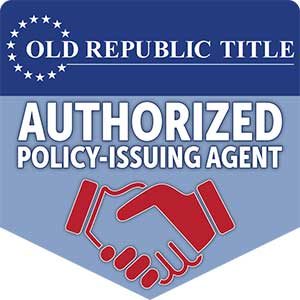Securing title insurance for a home can be overwhelming. The following FAQ list answers the questions that most buyers tend to have about title insurance; but it is by no means exhaustive. Scott Title Services, based in Shrewsbury, NJ, provides experienced professional title insurance services. Please contact us if you have any further inquiries after reading.
What is title insurance?
A title is someone’s legal ownership of a piece of property. Title insurance protects the title holder from future claims made against the title. For example, if in the future it comes to light that the property’s deed was forged, or if a previous owner’s heir claims a right to the property, the holder of the title insurance policy will be protected.
What does a title insurance agent do?
A title insurance agent researches and thoroughly examines the state of the property’s title. The title insurance agent will perform a search of public records to look for any defects in the current title, such as a lien against the property from unpaid taxes.
What are the different types of title insurance?
There are two types of title insurance: insurance for the buyer, and insurance for the lender. Insurance for the buyer is called an Owner’s Policy. An Owner’s Policy protects the buyer of the property from future claims and covers any legal defense fees if a claim proves to be valid. Lender’s title insurance is called a Loan Policy. Most lenders require a Loan Policy when they issue a mortgage loan.
How is title insurance paid for, and how long does coverage last?
The party that pays for title insurance varies depending upon where your real estate transaction is taking place. In New Jersey, it is typical for the buyer to purchase title insurance as part of total closing costs.
The purchaser of title insurance pays once but receives coverage for as long as he or she retains an interest in the property. Title insurance is a one-time investment that can protect a homeowner from huge losses in the future.
How do I recognize an excellent title insurance agent?
An experienced title insurance agent knows the potential problems that could arise and what to look for when searching the title’s records, mitigating against the risk of future valid claims being issued against the title holder. If any defects are detected, the title insurance agent will work to fix these problems before the real estate transaction is complete.
When does a buyer typically start thinking about buying title insurance?
If you are in the process of buying a house, and you have recently signed a contract of sale, now is the time to begin the process of procuring title insurance. If you would like Scott Title to look at the history of the property you are purchasing, please contact us and we can begin the process of protecting your title.
What is the difference between homeowners insurance and title insurance?
Homeowners insurance protects your home and personal belongings from damages like fires, theft, or natural disasters and requires ongoing premium payments. In contrast, title insurance safeguards against legal claims or disputes over property ownership. It’s a one-time payment made at closing and covers past issues with the property’s title, such as liens or forgeries. While homeowners insurance addresses physical damages, title insurance deals with potential legal disputes over property ownership.
What does title insurance protect you from?
Once a property title search has been completed and ownership of the property has been verified, the homeowner will then be issued title insurance. This insurance protects both property owners and lenders from losing the property due to any title defects such as liens, lawsuits, unpaid taxes, fraud, or errors as well as covering the costs of defending against future, unforeseen claims on the property.
Who picks the title company, buyer or seller?
Most real estate deals will likely involve a title company at some point if the deal gets far enough along. The typical practice in a real estate transaction is that the buyer will submit an offer for a property, either on their own or with the help of a real estate agent. The buyer will then retain a title company and they will help deal with a property title search and securing title insurance. Despite the buyer generally being the party to choose the title company, there are situations where the seller is involved in choosing the title company.
Do I need title insurance if I pay cash for a house?
Being in the position to pay cash when purchasing a home is a great feeling. However, before you close the deal, it is still in your best interest to purchase title insurance. Paying in cash will not keep you safe from the things that title insurance is designed to protect you from. In some cases, if you are paying cash you may be able to negotiate the cost of title insurance into the closing costs.
What is not covered by title insurance?
While not all title policies cover the same things, there are a number of items that are unlikely to be covered in a general title insurance policy. This includes:
- Any defects created after the issuance of the policy, or defects that you create.
- Issues arising as the result of failing to pay your mortgage.
- Issues arising as the result of failing to obey the law or certain covenants.
- Specific taxes and assessments.
- Violating zoning or building ordinances related to land use, improvements, or environmental protection.
- Restrictive covenants that limit the use of the property.
- Condemned land.
- Claims from others who might have rights to your property if a body of water (river, stream, lake, etc.) is on or near the property.
Do I need owner's title insurance for new construction?
If you are building a new home from scratch, you are probably wondering if you need title insurance. If the home is newly built, what history could there possibly be that could cause problems? It’s a good question and the answer is that yes, title insurance is still a good idea for a new construction home. Construction of a new house has the potential to lead to unique title-related issues that can negatively impact the lender and homeowner. At the most basic level, other people have probably owned the land before you built on it and a title search will uncover any existing liens. You can also perform a survey to determine the boundaries of the property.
Is a title search required when refinancing?
If you are looking into refinancing your home and are wondering whether you need to have another title search performed, you are not alone. Although it may not make much sense to you, a lender will want a new title search before refinancing your mortgage. Lenders will simply not give you a new loan without taking this step first.





